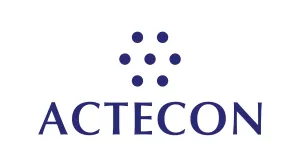1. INTRODUCTION
The European Commission ("Commission"), being quiet active between the last week of June and first week of July 2017, initiated trade remedy investigations (i.e. anti-dumping and expiry review) against various countries, including Turkey. In particular, the Commission launched an anti-dumping investigation concerning Turkey's exports to the EU and a trade barrier examination concerning EU imports to Turkey.
Considering importance of the issue for the companies active in the low carbon ferro-chrome and uncoated wood free paper market, as well as for the economy of Turkey and EU in general, below we provide highlights of the investigations together with the outline of main procedural steps and opportunities available for the parties in the course of the investigations.
2. Anti-Dumping Investigation Concerning Turkey's Exports to the EU
2.1 Legal framework
As emphasized in the Agreement on Implementation of Article VI of the General Agreement on Tariffs and Trade 1994, the main purpose of the anti-dumping rules is to protect a Union/domestic industry against injuries caused by dumped imports of the like products. In this context, the Commission shall conduct an investigation to determine the existence, degree and effect of any alleged dumping upon a written complaint by any natural or legal person, or any association not having legal personality, acting on behalf of the Union industry.
On 23 June 2017, the Commission announced its decision to launch an anti-dumping investigation concerning the imports of "low carbon ferro-chrome" products (with the CN code 7202.49.50) originating in China, Russia and Turkey following the complaint that the concerned imports are being dumped and are causing material injury to the European Union ("EU") industry. According to the Notice of the Initiation, the complaint was lodged on 10 May 2017 by the Association of European ferro-alloy producers ("Euroalliages") on behalf of the sole EU producer of low carbon ferro-chrome in the EU, namely Elektrowerk Weisweiler GmbH ("Complainant"). The investigation will be carried out by the Commission in accordance with Regulation (EU) 2016/1036 of the European Parliament and of the Council of 8 June 2016 on protection against dumped imports from countries not members of the EU ("Regulation").1 It outlines the main aspects of the EU antidumping investigation including the principles, initiation of proceeding, definition of the EU industry and like product, determination of dumping and injury, provisional and definitive measures, and undertakings.
2.2 Important deadlines
As of 23 June 2017, i.e. the date when the Notice of Initiation2 was published in the Official Journal of the EU, the clock has started ticking for both exporting producers and the Commission, which are bound by certain strict deadlines. For instance, within 15 days following the publication of the Notice of Initiation all exporting producers and associations of exporting producers in Turkey are invited to get in contact with the Commission so that they can identify themselves and request a questionnaire to be able to submit highly important and confidential data. Further, the exporting producers and, where applicable, the associations of exporting producers shall have 37 days of the date of the publication of the Notice of Initiation in order to submit their responses to the questionnaire. At the same time, the Commission shall carry out its comprehensive dumping and injury analysis and then conclude its investigation within 15 months of the date of the publication of the Notice of Initiation in the Official Journal of the EU.
2.3 Benefits of cooperation & confidentiality
Within this scope, if an interested party does not provide necessary information within the above-stated time periods, such party shall be deemed as non-cooperative. In such cases, provisional or final findings, affirmative or negative shall be made on the basis of the facts available. Accordingly, the result of the investigation may be less favorable to that party than should it had cooperated. In addition to this benefit of cooperating with the Commission, the preparation and submission of full responses in a right and duly manner will also help the exporting companies to put forward their arguments more effectively as well as assisting the Commission in ensuring a fair comparison between the export price and normal value.
Full responses to the questionnaires imply also provision of the confidential data. In this regard, the Regulation ensures protection and the non-disclosure of the confidential data submitted by the interested parties, however, with the condition that they also provide their non-confidential summaries which should be sufficiently detailed to permit a reasonable understanding of the substance of the information submitted in confidence. This guarantees both parties' fundamental right, namely right to defence.
2.4 Other procedural steps
The Commission shall, where it considers it appropriate, carry out verification visits at the premises of the interested parties, in order to examine their records and to verify information provided on dumping and injury. In the absence of a proper and timely reply, the Commission may choose not to carry out a verification visit. Therefore, a proper preparation by the exporting companies for the verification plays a critical role as only the verified data will be used in the determination of the dumping and injury margins. The methods used by the Commission in the dumping margin calculation are regulated under Article 2 of the Regulation whereas Article 3 sets forth the main principles of the injury calculations. The respective measure to be adopted following the investigation shall be applicable for a five-year period.
Finally, the Commission shall announce its findings in which it discloses its intent to recommend the imposition of a provisional or definitive duty in respect of the EU as a whole. As there will be a very short deadline for the interested parties to submit their comments on the findings, the simulations for both dumping and injury calculation by the interested parties as well as the design of the strategies from both technical and legal perspective prior to the announcement appears to be of vital importance for the future export plans of the companies.
In conclusion, it is highly advisable that the Turkish exporting producers of the product under the investigation should consider both the advantages (such as getting an individual duty rate) and disadvantages (if any) of cooperation with the Commission in the concerned anti-dumping investigation which will shape their future exportation strategies.
3. Trade Barrier Investigation Concerning EU Imports To Turkey
3.1 The legal issue
On 7 July 2017 the Commission initiated an examination procedure on obstacles to trade within the meaning of Regulation (EU) 2015/1843 applied by Turkey and consisting of measures affecting the import of uncoated wood free paper.3 The investigation was launched upon a complaint of an industry association against the import surveillance system/importing licensing requirement introduced in Turkey as of 28 September 2015 for uncoated wood free paper imported into Turkey at a customs value of USD 1200 per tonne or less. The complainant states that such a specific licensing requirement could be incompatible with the Customs Union Agreement and the WTO rules since it affects all imports from the EU. As explained by the complainant, it is impossible to obtain such license due to the specific information requirements of the licensing procedure – such information is only available for paper producers, and consequently the importers of wood free paper are (indirectly) forced to declare their customs value above USD 1200 per tonne (even where the actual import value is less), which creates additional cost/tax for the importers of the product.
3.2 Procedural aspects
Within 45 days following the date of publication of the Notice of Initiation, any interested parties may submit in writing comments/information/supporting evidence/request to be heard to the Commission in relation to specific issues raised by the complaint and primarily concerned by the outcome of the investigation.
The trade barrier examination in the EU, just as in any other jurisdiction member of the WTO, is one of the tools available for the companies/professional associations in addressing foreign government measures that may have a negative impact on their business. It may lead to a WTO dispute settlement case if the trade barrier examination/regulations fails does not lead to a satisfactory settlement with Turkey. But in general the Commission aims to reach such solution so that the companies can enjoy the beneficial results more quickly (as compared to other possible outcomes involving long and costly dispute settlement mechanisms).
4. CONCLUDING REMARKS
Both the anti-dumping investigation in low carbon ferro-chrome market and the trade barrier examination in relation to the uncoated wood free paper market recently initiated by the European Commission against Turkey demonstrate increased importance of trade between the EU and Turkey, as well as compliance with the WTO rules. The outcome of the investigations is yet to be seen, but in any case cooperation between the parties concerned and the Commission are vital in order to reach the satisfactory solutions as soon as possible with as less negative impact as possible for both jurisdictions.
Footnotes
1 http://trade.ec.europa.eu/doclib/docs/2016/june/tradoc_154702.en.L176-2016.pdf
2 http://eur-lex.europa.eu/legal-content/EN/TXT/PDF/?uri=CELEX:52017XC0623(01)&from=EN
The content of this article is intended to provide a general guide to the subject matter. Specialist advice should be sought about your specific circumstances.



